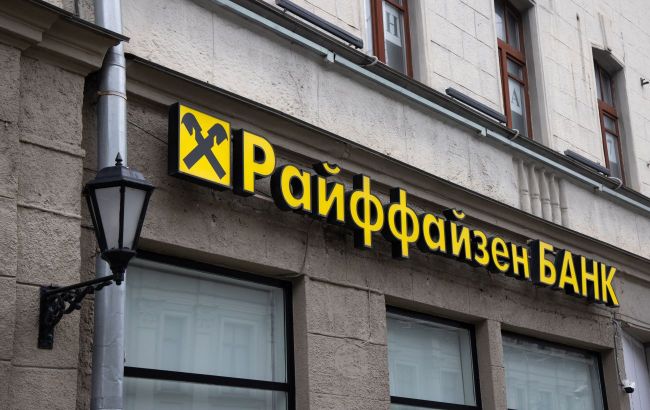Raiffeisen Bank restricts foreign transfers abroad for Russian residents
 Photo: Raiffeisen closed currency transfers for Russian residents (Getty Images)
Photo: Raiffeisen closed currency transfers for Russian residents (Getty Images)
The Russian branch of Austria's Raiffeisen Bank International announced that starting from September 2, private clients will no longer be able to make foreign transfers in any currency except rubles, according to Reuters.
The subsidiary stated that the new restriction, which will not apply to certain large and international companies, is being implemented due to the group's efforts to reduce its presence in Russia under pressure from European regulatory authorities.
The European Central Bank (ECB) demands that Eurozone banks still operating in Russia sever their ties. The ECB has asked all banks with significant connections to Russia to accelerate efforts to reduce risks by developing a clear roadmap for reducing operations and exiting the Russian market.
Bank's decision
"From Sept. 2, 2024, outgoing cross-border transfers in foreign currency will become unavailable for all the bank's clients apart from a limited number of corporate clients in the large and international business sphere," Raiffeisenbank in Russia stated.
The restriction is being implemented following the RBI Group's decision in connection with ECB regulations, the bank said. "The changes do not apply to cross-border payments in roubles," the statement added.
In April, Raiffeisen stated that the ECB would require further reductions in its business in Russia by reducing client lending and cutting international payments from Russia by 2026.
Eurozone banks have more than halved their presence in Russia since Moscow invaded Ukraine in 2022.
Raiffeisen has faced criticism as its profits in Russia surged, with Washington even warning RBI that access to the US financial system could be restricted due to its cooperation with Russia.
In July, Raiffeisen Bank International announced that it would continue to scale back its large and profitable business in Russia under an agreement with the European Central Bank.

